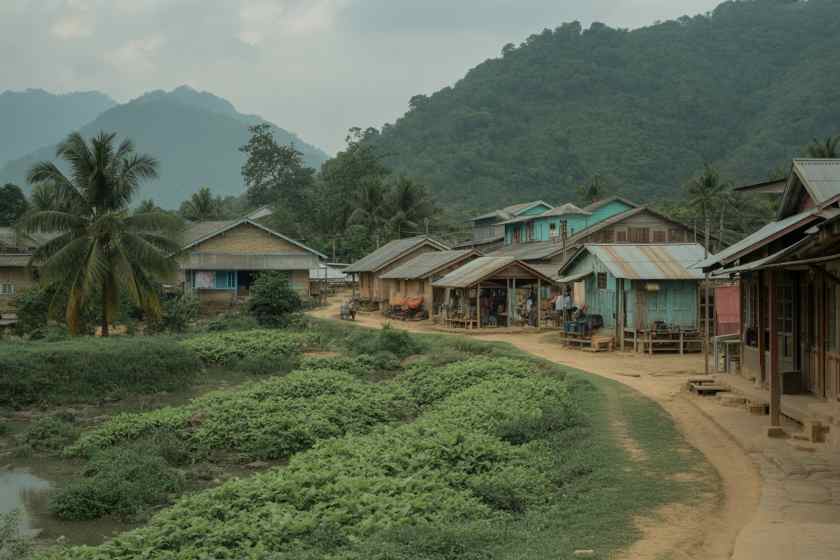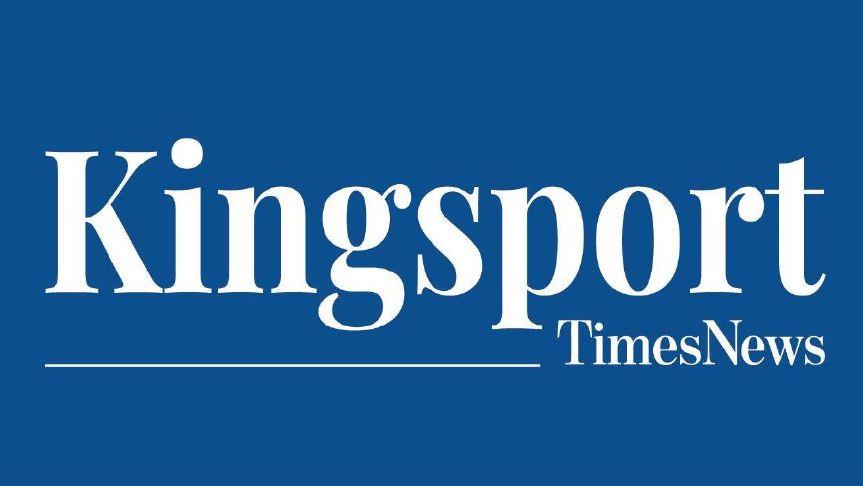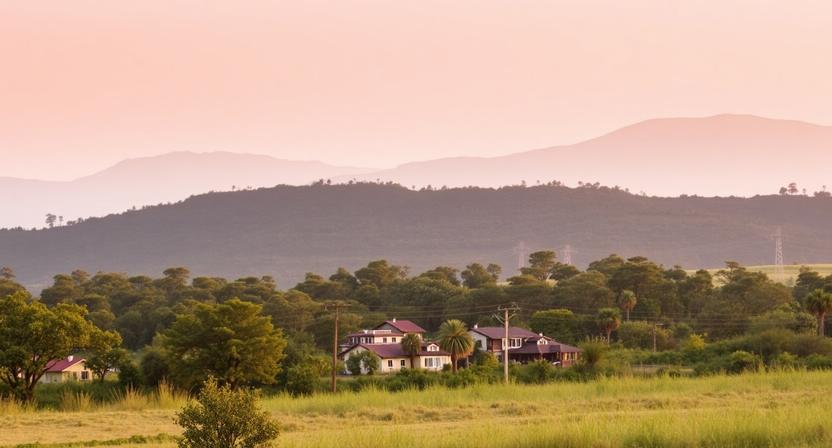Transform Rural Communities Through Tourism: UN Tourism’s New Online Educational Program – Travel And Tour World

Report on UN Tourism’s Online Educational Program for Rural Development
Program Overview and Alignment with Sustainable Development Goals (SDGs)
UN Tourism has launched two new online courses under its Tourism for Rural Development Programme. This initiative is designed to empower rural communities and tourism professionals by providing practical skills for sustainable development. The program directly supports the United Nations’ Sustainable Development Goals (SDGs) by leveraging tourism as a tool for socio-economic progress and environmental protection.
- SDG 1 (No Poverty) & SDG 8 (Decent Work and Economic Growth): The courses aim to create new income streams and employment opportunities in rural areas, fostering economic diversification and inclusive growth.
- SDG 4 (Quality Education): By offering free, accessible, and high-quality training, the program provides lifelong learning opportunities for individuals in remote regions.
- SDG 10 (Reduced Inequalities) & SDG 11 (Sustainable Cities and Communities): The initiative promotes community-based tourism, empowering local populations, including marginalized groups, to take ownership of their cultural and natural heritage.
- SDG 12 (Responsible Consumption and Production): A core focus is on developing sustainable tourism products that protect the environment and preserve cultural integrity.
Course Details and Skill Development
The program consists of two distinct Massive Open Online Courses (MOOCs), available in English and Spanish, designed to address key aspects of rural tourism development.
- Product Development and Marketing for Rural Areas: This course equips participants with the skills to identify and create sustainable tourism products. Key learning areas include market analysis, product planning, and promotional strategies that highlight local culture and conserve the rural ecosystem, directly contributing to SDG 11 and SDG 12.
- Design Thinking for Rural Tourism Development: This course introduces a creative, problem-solving approach to tourism challenges. It focuses on enhancing visitor satisfaction, mitigating environmental impacts, and ensuring robust local participation in tourism planning, which aligns with the principles of SDG 8 and SDG 11.
Global Accessibility and Contribution to SDG 4 (Quality Education)
The program’s design ensures broad and equitable access to education, a central tenet of SDG 4.
- Barrier-Free Access: The courses are offered free of charge, removing financial barriers for participants globally.
- Multilingual Platform: Availability in English and Spanish expands the program’s reach across different linguistic regions.
- Flexible Learning: The self-paced format allows professionals, entrepreneurs, and community leaders to learn according to their own schedules, bridging the educational gap often present in the tourism sector.
Fostering Inclusive Economic Growth and Community Empowerment
The initiative is a strategic effort to foster inclusive development and reduce inequalities in line with SDG 1, SDG 8, and SDG 10.
- Community-Centric Approach: The courses advocate for a bottom-up development model, ensuring that local communities are integral to the planning and benefit directly from tourism activities.
- Economic Resilience: By promoting tourism, the program helps rural economies diversify, reducing dependence on traditional sectors and building resilience.
- Inclusive Opportunities: The focus is on creating tourism experiences that benefit all members of a community, particularly underprivileged groups, by valuing and monetizing local customs, traditions, and heritage.
Enhancing Competitiveness and Safeguarding Heritage
The program aims to enhance the visibility and competitiveness of rural destinations while promoting responsible practices consistent with SDG 11 and SDG 12.
- Modern Skill Development: Participants learn to use sophisticated marketing tools and technologies to connect with global travel markets.
- Authentic Product Innovation: The curriculum encourages the creation of unique, off-the-beaten-path travel experiences that meet growing consumer demand for authenticity.
- Sustainable Management: The core objective is to build tourism models that are economically viable, ecologically sustainable, and culturally sensitive, thereby safeguarding assets for future generations.
Registration and Access
Access to the educational modules is open and straightforward for all interested individuals.
- The courses are available to tourism professionals, local leaders, students, and entrepreneurs.
- Interested parties can register for free on the official UNWTO website.
- The learning materials are designed for self-paced study to accommodate a wide range of learners.
Conclusion: Empowering Rural Communities for a Sustainable Future
The launch of these online courses by UN Tourism represents a significant investment in the sustainable future of rural communities. By providing targeted education in product development, marketing, and design thinking, the program equips these communities with the necessary tools to integrate into the global tourism economy on their own terms. This initiative is a practical application of the Sustainable Development Goals, demonstrating how quality education (SDG 4) can drive inclusive economic growth (SDG 8), reduce poverty (SDG 1), and promote the sustainable management of community resources (SDG 11, SDG 12).
Analysis of Sustainable Development Goals in the Article
1. Which SDGs are addressed or connected to the issues highlighted in the article?
-
SDG 4: Quality Education
The article is centered on the provision of free, accessible online education through UN Tourism’s new courses. It explicitly states the goal is to bridge the “education and training gap in the sector” and ensure “quality of education in tourism industry is available to all,” which directly aligns with the core mission of SDG 4 to ensure inclusive and equitable quality education.
-
SDG 8: Decent Work and Economic Growth
The program aims to use tourism as a tool for economic development in rural areas. The article notes that rural tourism is a “powerful development tool,” a “vital source of revenue and employment,” and a means for “economic diversification.” By equipping communities with skills for product development and marketing, the initiative promotes sustainable economic growth and job creation.
-
SDG 10: Reduced Inequalities
The initiative specifically targets inequality by making the courses free, online, and available in multiple languages. The article highlights that this ensures the program “crosses boundaries and reaches various professionals…living in far remote areas” and benefits “the ignored and underprivileged,” directly addressing the goal of promoting social and economic inclusion for all.
-
SDG 11: Sustainable Cities and Communities
While focused on rural areas, the principles of SDG 11 are central to the article’s theme. The courses teach how to foster “community-based, inclusive, and sustainable tourism development.” A key objective mentioned is the “conservation of the rural ecosystem and cultural heritage,” which directly connects to protecting the world’s cultural and natural heritage.
2. What specific targets under those SDGs can be identified based on the article’s content?
-
Under SDG 4 (Quality Education):
- Target 4.4: “By 2030, substantially increase the number of youth and adults who have relevant skills, including technical and vocational skills, for employment, decent jobs and entrepreneurship.” The article details how the courses aim to “equip participants with the necessary practical skills” for tourism development, product planning, and marketing, directly contributing to this target.
- Target 4.7: “By 2030, ensure that all learners acquire the knowledge and skills needed to promote sustainable development…” The courses are explicitly designed to foster “sustainable tourism development” and help communities build “cost-effective and ecologically sustainable” tourism products.
-
Under SDG 8 (Decent Work and Economic Growth):
- Target 8.9: “By 2030, devise and implement policies to promote sustainable tourism that creates jobs and promotes local culture and products.” The entire program is an implementation of this target. The course ‘Product Development and Marketing for Rural Areas’ teaches communities how to create “tourism products that embody local customs, traditions, and heritage,” thereby promoting local culture and creating economic opportunities.
-
Under SDG 11 (Sustainable Cities and Communities):
- Target 11.4: “Strengthen efforts to protect and safeguard the world’s cultural and natural heritage.” The article states that the courses focus on “fostering the conservation of the rural ecosystem and cultural heritage” and protecting “the environment and the culture” as part of sustainable tourism development.
3. Are there any indicators mentioned or implied in the article that can be used to measure progress towards the identified targets?
-
For Target 4.4 (Relevant skills for employment):
An implied indicator is the number of individuals registered for and completing the online courses. The article emphasizes that the courses are freely available to “local leaders, tourism professionals, students and entrepreneurs,” so tracking enrollment and completion rates would measure the reach of this skills development initiative.
-
For Target 8.9 (Promote sustainable tourism):
The article implies several indicators:
- The number of new, sustainable tourism products developed in rural communities by course participants.
- The increase in revenue and employment generated from tourism in these rural areas. The article mentions tourism as a “vital source of revenue and employment.”
- The increase in visibility and competitiveness of rural destinations, as the program aims to “enhance the rural destinations’ visibility and competitiveness in the global tourism arena.”
-
For Target 11.4 (Protect cultural and natural heritage):
An implied indicator would be the number of tourism projects initiated by communities that explicitly include components for the conservation of local ecosystems and cultural heritage. The courses aim to help communities gain “more control over their cultural and environmental tourism assets,” so the implementation of conservation-focused tourism would be a direct measure of success.
4. Table of SDGs, Targets, and Indicators
| SDGs | Targets | Indicators (Implied from the article) |
|---|---|---|
| SDG 4: Quality Education |
4.4: Increase the number of adults with relevant skills for employment and entrepreneurship.
4.7: Ensure learners acquire knowledge and skills for sustainable development. |
– Number of individuals (local leaders, entrepreneurs, students) registered for and completing the online courses. – Implementation of sustainable tourism practices by course participants. |
| SDG 8: Decent Work and Economic Growth | 8.9: Devise and implement policies to promote sustainable tourism that creates jobs and promotes local culture and products. |
– Number of new sustainable tourism products developed in rural areas. – Increase in revenue and employment from tourism in participating communities. – Increased visibility of rural destinations in the global tourism market. |
| SDG 10: Reduced Inequalities | 10.2: Empower and promote the social and economic inclusion of all. |
– Number of participants from remote, ignored, or underprivileged rural communities. – Geographic and demographic diversity of course learners. |
| SDG 11: Sustainable Cities and Communities | 11.4: Strengthen efforts to protect and safeguard the world’s cultural and natural heritage. |
– Number of community-led tourism initiatives that include conservation of local ecosystems and cultural heritage. – Level of local participation and ownership in tourism planning and development. |
Source: travelandtourworld.com
What is Your Reaction?
 Like
0
Like
0
 Dislike
0
Dislike
0
 Love
0
Love
0
 Funny
0
Funny
0
 Angry
0
Angry
0
 Sad
0
Sad
0
 Wow
0
Wow
0

















































































